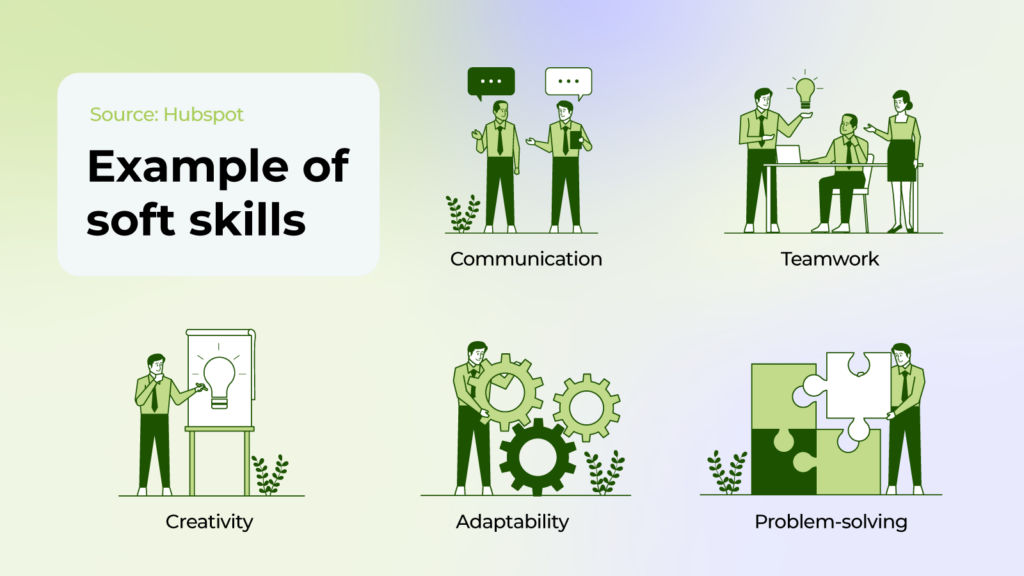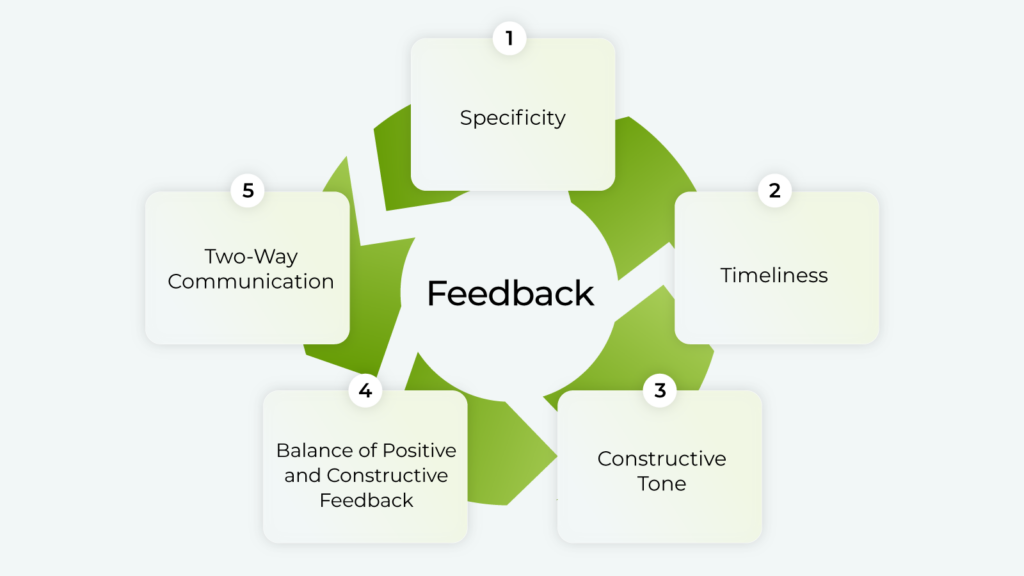A comprehensive guide to soft skills management for career advancement for 2024

Many organizations have carved out prestigious reputations based on their unmatched technical prowess, drawing from their deep reservoirs of industry-specific expertise and years of hands-on experience. They’ve mastered the tangible, quantifiable facets of their domain, leading to product innovations, service excellence, and often, a dominant market position. However, as these entities aspire to ascend the ladder to even more prominent leadership positions and expand their spheres of influence, they often encounter an unseen barrier or blind spot: the domain of soft skills.
These soft skills, encompassing attributes like effective communication, empathy, adaptability, and collaboration, play a pivotal role in navigating the intricate nuances of organizational dynamics, stakeholder interactions, and team leadership.
They’re the undercurrents that power the more visible manifestations of success, facilitating trust-building, problem resolution, and forward-thinking strategy development.
For organizations aiming to secure their place at the pinnacle of their industry, a balanced emphasis on both technical expertise and soft skills becomes not just desirable, but imperative. Recognizing and nurturing these soft skills can bridge the gap between technical excellence and holistic leadership, ensuring that an organization doesn’t just thrive but leads with vision and influence.
Delve deeper into the significant role of soft skills in business growth and how they can be the key to unlocking unparalleled success in leadership and collaboration.
Unveiling the power of soft skills
Defining soft skills
Soft skills stand in stark contrast to technical or “hard” skills, which are often associated with specific tasks or job functions. While hard skills are crucial and quantifiable, soft skills delve into the more nuanced realms of interpersonal and intrapersonal dynamics.
They embody the competencies that facilitate seamless interaction with others, fostering teamwork, empathy, and effective communication. Moreover, they also encapsulate the intrapersonal skills necessary for self-awareness, self-regulation, and adaptability in ever-changing professional landscapes.

As the business world continues to evolve, the significance of these soft skills becomes increasingly important, bridging the gap between mere technical expertise and holistic professional success.
Why they’re the backbone of leadership
Technical expertise is undeniably valuable, anchoring your place within a team and showcasing your proficiency in specific tasks and domains. However, in the broader landscape of team dynamics and leadership, soft skills emerge as the real game-changers.
These skills, often intangible yet deeply impactful, are the catalysts for fostering genuine understanding among team members. They are the sparks that ignite motivation, allowing teams to push beyond mere task completion to achieve true innovation. Furthermore, soft skills are the glue that binds diverse individuals into a cohesive unit, promoting collaboration and mutual respect.
In leadership roles, where guiding diverse talents and temperaments is a daily challenge, the presence or absence of these skills can mark the difference between a functional team and an exceptional one. As the modern workplace continues to evolve, emphasizing emotional intelligence and interpersonal acumen, soft skills have transcended from being “nice-to-have” to indispensable for any aspiring leader.
Soft skills and career advancement
Making an impact beyond the resume
A resume serves as a tangible testament to your qualifications, detailing your achievements, experiences, and competencies. However, beyond the confines of that document lies the expansive realm of interpersonal interactions—be it in meetings, during interviews, or in everyday professional exchanges.
In these settings, your soft skills emerge as the real differentiators. They are the invisible forces that guide your ability to communicate effectively, empathize with colleagues, negotiate with finesse, and adapt to unexpected situations.
More than just qualifications on a page, it’s these nuanced abilities that can transform you from being merely a name amidst a pile of applications to a standout individual who leaves a lasting impression. In an increasingly interconnected and collaborative professional world, these skills elevate your presence, making you not just a participant, but a truly memorable contributor in any setting.
Becoming the go-to leader in the workplace
Possessing robust soft skills does more than just fit you into a team framework; it elevates your position within it.
These skills, such as effective communication, empathy, and conflict resolution, naturally draw peers to you in times of uncertainty or challenge. When colleagues seek you out for counsel, insights, or collaboration, it’s a testament to your ability to understand, resonate, and positively influence those around you.
It’s not just about having a title or a designated role; it’s about the trust and respect you command through your interpersonal prowess. In essence, strong soft skills don’t just make you a team member; they subtly position you as an informal leader, a beacon of guidance and stability within the professional community.
Key soft skills for career advancement
Communication
Effective communication is more than just the transmission of words; it is the pivotal bridge that spans the gap between conceptual ideas and their practical realization. By articulating thoughts clearly and comprehensively, it ensures that visions are not lost in translation but are conveyed in their intended essence.
This clarity drastically reduces the potential for misunderstandings, which can lead to misalignment and inefficiencies. Moreover, effective communication paves the way for transparency, fostering an environment of trust where stakeholders are informed and aligned.

In a professional landscape where collaboration is key, the ability to communicate effectively becomes the cornerstone of seamless operations, ensuring that every team member understands their role, the broader goals, and the path to achieving them.
Adaptability
In an era defined by its relentless pace of change, versatility becomes the gold standard. It’s not just about surviving the shifts, but thriving amidst them. The ability to adjust signifies more than mere flexibility; it showcases resilience, foresight, and a proactive mindset.
Pivoting effectively means recognizing emerging trends and challenges and recalibrating strategies accordingly. Embracing new scenarios is about being open to uncharted territories, viewing them not as obstacles, but as opportunities to learn, innovate, and grow.
In such a dynamic environment, this adaptability becomes an invaluable asset, setting apart those who merely react from those who proactively shape their future, turning uncertainties into avenues for progress.
Emotional intelligence
Comprehending and adeptly navigating the realm of emotions, whether it’s your own or those of the people around you, is a skill of significant importance in any professional setting. When you truly understand emotions, you are equipped to preemptively address concerns and grievances, thereby preventing minor disagreements from escalating into major conflicts.
By managing and responding to these feelings with tact and empathy, you not only address the immediate issue but also cultivate a foundation of trust and respect.
This ability strengthens bonds between colleagues, encouraging open dialogue and mutual support. In the long run, these positive interactions culminate in a workplace environment where harmony prevails, collaboration thrives, and individuals feel valued and understood.
Such an atmosphere not only boosts morale but also enhances productivity, as team members operate in a setting where their emotional well-being is acknowledged and prioritized.
Problem-solving
Problem-solving is not merely about pinpointing challenges; it’s an intricate dance of analytical acumen, innovative thinking, and sheer determination. It begins with the keen ability to identify underlying issues, often hidden beneath layers of complexity. But recognition is just the starting point.
True problem-solving demands the employment of critical thinking—a logical and structured approach to dissecting challenges and weighing potential solutions.
Intertwined with this analytical mindset is the need for creativity, where out-of-the-box thinking can often lead to novel solutions that may not be immediately apparent. And underpinning all these skills is resilience: the tenacity to persist in the face of setbacks, continually refining approaches until a viable solution is achieved.
This holistic approach to problem-solving doesn’t just resolve issues; it propels organizations forward, turning challenges into catalysts for growth and innovation.
Cultivating and managing these skills
Continual self-assessment and reflection
Engaging in consistent self-reflection offers a window into your innate strengths and areas of growth, especially in the realm of soft skills. By taking the time to introspect, you gain a clearer understanding of the interpersonal and intrapersonal abilities you already master, as well as those that might require further honing.
This practice of self-awareness provides a roadmap, guiding you on where to invest effort for personal and professional development. Recognizing your natural talents can boost confidence, while identifying areas for improvement ensures continuous growth and adaptability in ever-evolving professional landscapes.
Seeking feedback
Receiving constructive feedback, whether it comes from colleagues, superiors, or mentors, serves as a valuable lens through which you can view and assess your interpersonal prowess. Such feedback provides insights that may not be evident through self-assessment alone.
By embracing these external viewpoints, you gain a more comprehensive understanding of how you interact, communicate, and relate to others within a professional context.

This awareness is crucial, as it highlights areas of strength and pinpoints where improvements can be made, ultimately guiding personal growth and enhancing your effectiveness in working with others.
Immersive learning experiences
Participating in workshops, engaging in role-playing exercises, and navigating real-world scenarios provide invaluable opportunities to hone your soft skills within a structured setting.
These environments, designed for learning and development, enable individuals to experiment with different communication styles, test their emotional intelligence, and confront challenging interpersonal situations without the high stakes of real-world consequences. By practicing in such controlled settings, you can receive immediate feedback, make adjustments, and iteratively improve.
Over time, this deliberate practice translates to increased confidence and competence, ensuring that when faced with genuine challenges outside the controlled environment, you are better equipped to navigate them effectively.
Final word
Navigating the path of career progression, technical skills undeniably provide the fundamental bedrock, acting as the pillars supporting one’s professional journey.
However, it’s the soft skills—those intricate interpersonal and intrapersonal capabilities—that truly elevate an individual, much like the intricate architectures that rise to form the majestic skyscrapers touching the zenith of leadership and excellence.
Soft skills, ranging from effective communication and empathy to adaptability and critical thinking, play a pivotal role in shaping a professional’s ability to influence, inspire, and innovate.
By actively recognizing the importance of these skills, dedicating time to nurture them, and strategically employing them in day-to-day interactions and decision-making processes, one transcends traditional roles.
With a robust combination of technical acumen and finely-tuned soft skills, you not only secure your place in the professional realm but also ascend to positions of leadership and influence.
In doing so, you transform from being a mere participant in the workforce to a visionary leader, charting the course and steering the collective towards greater horizons of success and innovation.
Discover how DevSkiller can help you with soft skills management.
Schedule a demo with one of our product experts or watch this quick 5-min demo video to find out more.
FAQs
- Is it possible to develop soft skills later in one’s career?
Absolutely! With dedication, practice, and the right resources, soft skills can be cultivated at any stage of one’s career.
- How can organizations support soft skills development?
Organizations can offer training programs, mentorship opportunities, and create an environment that values and promotes interpersonal excellence.
- Are soft skills industry-specific?
No, soft skills are universally applicable, transcending specific industries and roles.
- How to measure the ROI of soft skills training?
While more intangible than technical skills, the ROI of soft skills training can be gauged through improved team dynamics, increased productivity, and enhanced leadership capabilities.
- Do soft skills outweigh technical skills in leadership roles?
Both are vital. However, in leadership roles, the ability to guide, inspire, and collaborate often hinges more on soft skills.
Share post